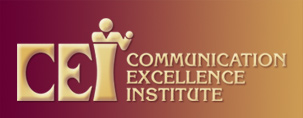When our level of stress increases, our rational thinking decreases. Consequently, the better prepared we are to react in adverse situations, the better the outcome. Media training—before a crisis ever hits—makes designated spokespersons feel comfortable, not only in handling questions, but also in clearly presenting an organization's key points while sounding sincere and credible.
Media training also is effective in "friendly" media situations. Again, it helps the spokesperson keep a clear head and speak in succinct messages to make even good situations better.
A well-planned crisis communication team and spokesperson will have a set of messages that they know very well and will communicate during a crisis. The messages will incorporate the organization's objectives, along with responses to anticipated questions.
Because different audiences need different messages, message points may vary slightly. However, the messages must be in concert so that there is no conflict.
At CEI, our professional staff includes former newspaper reporters for the L.A. Times, television producers, and media spokespersons for major corporations. They are available to give you insider tips on handling the pressure of media attention.
You may want to prepare a variety of spokespeople-from top management, to experts in the field, to a regular client or customer. All potential spokespersons should be aware of your specific "message points." All others should be instructed how to helpfully and courteously refer reporters to a designated Media Center.
When selecting spokespeople, besides their respective positions, you want to assess their ability to communicate, their knowledge of the situation and their understanding of the organization. How well do they present themselves? Can they remain professional and not get their personal egos involved?
Switchboard operators and receptionists also may require training on appropriate responses to aggressive reporters who may wish to do an "end run" around the designated spokesperson and go directly to another "source."
Media training sessions can take anywhere from a couple of hours to two days. It includes videotape sessions for on-camera experience feedback and critique.
It is important that training be done on a regular basis, at least once or twice a year, to refresh the spokespersons' skills and maintain their confidence level.
Our charges for media training are $2,950 for 8 hours for one person, and $350 per hour for additional brush-up sessions. Group media training is $5,000 for a full day for up to five people.
For more information on Media Training, please call the Institute at (800) 410-4CEI (4234) or e-mail us at cei@talk2cei.com
|



